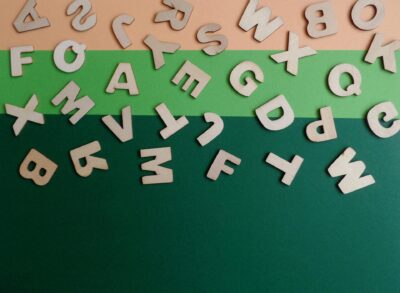
Though it might seem strange, color and colour actually have the exact same meaning. In fact, they are the exact same word. Both different spellings of this word are equally correct, meaning it’s hard for writers to figure out whether they should use color vs. colour.
Why even have two different spellings of the word, then? It’s relatively common for words to have multiple spellings in English: one spelling is used in American English, and another spelling is used in British and Australian English. Color vs. colour is one prime example of this discrepancy. Read on to learn more about the difference between color vs. colour, when to use each word, and how important the distinction between them really is.
Color: Meaning and Examples
Color is a noun meaning hue or shade. In America, the word ‘color’ is spelled without a ‘u,’ meaning ‘Color’ is a word found only in American English. A few examples of sentences including ‘color’ might include: “The colors of the American flag are red, white, and blue,” or, “She liked her hair color to be red.”
Colour: Meaning and Examples
Colour is also a noun meaning hue or shade. However, this version of the word, which includes the ‘u’, is only a term in British English. That means this word is used in the United Kingdom, Australia, Canada, and other non-American, English-speaking countries. A few examples of sentences including ‘colour’ might include: “Her favorite colour was yellow,” or, “His boyfriend preferred bold design choices and bright colours.”
As you can see, the way ‘colour’ and ‘color’ are used in a sentence is perfectly interchangeable, grammatically. The only difference is that ‘color’ is American English’ and ‘colour’ is British English.
Does the difference between color vs. colour really matter?
The answer: yes and no, depending on the context.
If you’re writing a formal piece of writing – say, for a report, or for publication on a website – then, yes, the difference generally does matter. Most formal pieces of writing are made to obey certain stylistic rules. For instance, a sociology report might be published in a sociology journal that follows the Chicago Manual of Style. Similarly, a newspaper article might be written in AP Style. These style guides include instructions for how to use British vs. American English, so if you’re writing a piece for one of these mediums, it’s important you pay attention to which terms you use.
However, in most situations, it isn’t as important which spelling of ‘color’ you use. Generally speaking, it’s best to try to use the version of a word that your audience is most familiar with. For instance, if you’re writing a blog post for an audience of American football fans, you might want to use the American spellings of words. On the other hand, if you’re writing about cricket or how to make the perfect milky tea, you might use British spellings, in anticipation of a largely British audience.
Either way, though, both uses of the word are grammatically correct, and in that sense, interchangeable. So don’t worry if you accidentally use ‘colour’ instead of ‘color.’ You haven’t made yourself look incompetent; if anything, you just made yourself seem more worldly.
Why the differences in spellings?
Still, this doesn’t answer the question of why there is a difference in spellings. Since Americans carried over English from the British, it seems odd that they bothered to change something so small as spelling. There are a few different theories on the exact origin of spelling differences, but the difference is largely attributed to Noah Webster, the creator of the first Webster’s dictionary. He created several dictionaries and spelling instruction manuals throughout his life, in which he changed the way words were spelled. By making terms sound more like they were spelled, he made writing and reading more accessible to those who could not afford much of an education.
Other examples of British vs. American spellings
Color vs. colour is only one example of clashing British and American spellings. Here are a few more words which are spelled differently in American and British English:
- Gray (American) vs. grey (British)
- Flavor (American) vs. flavour (British)
- Apologize (American) vs. apologise (British)
- Neighbor (American) vs. neighbour (British)
- Analyze (American) vs. analyse (British)
- Liter (American) vs. litre (British)
- Maneuver (American) vs. manoeuvre (British)
- Defense (American) vs. defence (British)
- Airplane (American) vs. aeroplane (British)
- Pediatric (American) vs. paediatric (British)
Feedback on Color vs. Colour
Was this blog post helpful for you? Do you still have questions about color vs. colour, or do you have questions about other homophones or commonly mixed-up words? Let us know in the comments and we might be able to create a post about it! Or check out our past grammatical blog posts, including our Accept vs. Except blog post.

